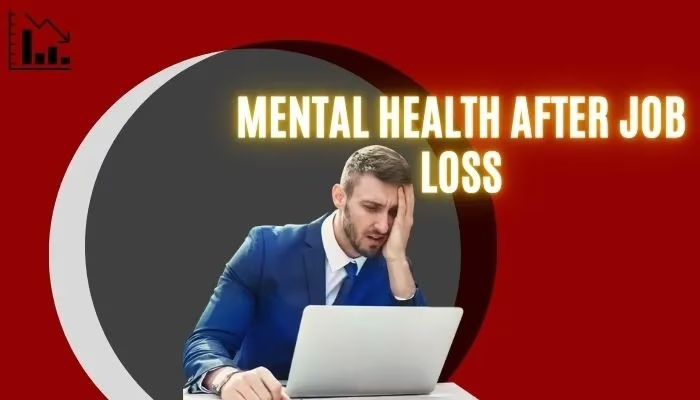
Experiencing job loss depression can feel like losing a part of who you are. It’s not just about losing a paycheck — it’s about losing rhythm, purpose, and the quiet confidence that comes from feeling needed. For many, it’s as if the ground beneath their feet suddenly shifts. The routine that once gave life structure — waking up early, checking emails, chatting with coworkers — fades away, leaving behind a heavy silence that’s hard to fill.
This silence can grow into something deeper: job loss depression. It’s more than sadness or frustration — it’s a mix of exhaustion, fear, and self-doubt that seeps into every part of your life. You might start asking yourself questions like, “What now?” or “Was I ever good enough?”
Recognizing that this isn’t just a financial setback but a major emotional experience is the first step toward healing. When the structure of daily work fades, caring for your mental health becomes even more essential — much like we explored in How I Rebuilt My Mental Health After Burnout.
Table of Contents
The emotional impact of losing a job can be unpredictable. Some days, you might feel angry or anxious; other days, completely numb. Many people blame themselves, replaying old conversations or decisions and wondering what they could’ve done differently. These thoughts are natural — but when left unaddressed, they can deepen sadness and quietly evolve into job loss depression.
When your routine disappears, motivation often follows. The long, unstructured days can make even simple tasks feel like challenges. That emptiness — the lack of purpose or belonging — can make you feel cut off from the world, even from yourself. You’re not lazy or weak; you’re processing loss, just in a quieter way that doesn’t always show on the outside.
Money worries only add to the emotional storm. Bills keep arriving even when income doesn’t. It’s not just about money — it’s about losing the sense of stability and control that once made you feel safe.
As savings shrink, fear can grow. You might start cutting back on social plans, ignoring messages, or feeling embarrassed to talk about your situation. Some people even hide their emotional struggles because they feel ashamed of not contributing financially. But silence only makes the burden heavier.
Remember, financial stress doesn’t define your worth — it only shows how deeply you care about stability and responsibility. Acknowledging that worry is valid can help you take small, calm steps toward regaining control.
Our jobs often become part of how we see ourselves — our role, our purpose, our pride. When that disappears, it’s easy to feel like a part of you has disappeared too. This loss of identity is one of the most painful parts of job loss depression.
You might wake up without a reason to start the day, unsure of what your role is anymore. Self-doubt creeps in: “Am I still capable? Am I still valuable?” Watching others succeed can make those feelings stronger, but remember — everyone’s path unfolds differently.
Your worth was never tied to your job title. It lives in who you are, not in what you do.
Recognizing the signs early helps you take care of your mind before the weight grows heavier.
Here are some common emotional and physical cues to look out for:
If these signs sound familiar, it doesn’t mean something is wrong with you — it means your mind is tired and needs kindness and rest.
Recovering from job loss depression takes time, but it begins with small, intentional actions that rebuild hope and structure.
Sometimes, healing requires an extra hand — and that’s perfectly okay.
If your sadness has lasted more than a few weeks, or if you’re struggling to find motivation or hope, talking to a counselor or therapist can help you navigate the storm safely.
Asking for help isn’t weakness — it’s courage. It means you care enough about yourself to want to feel better.
Every ending makes space for something new. Losing a job might close one chapter, but it doesn’t close your story. Start by reflecting on your strengths — the skills, values, and experiences that make you unique. Set small, achievable goals: updating your resume, taking an online course, or exploring new career directions.
Reconnect with people in your field. Networking isn’t just about finding work — it’s about rebuilding confidence through shared experience and encouragement. You are not defined by what you’ve lost but by how you choose to rebuild. Healing takes patience, but each small step moves you closer to peace, purpose, and possibility.
Recovering from job loss depression isn’t an overnight process — it’s a slow but powerful journey of rediscovery. You may feel lost now, but you’re still capable, still worthy, and still you. The road ahead may look uncertain, but new beginnings often grow from the hardest goodbyes. One day, you’ll look back and realize this chapter didn’t end you — it simply redirected you toward something stronger, more meaningful, and truly your own.
Disclaimer: This article is for informational purposes only and not a substitute for professional advice. If you’re struggling, please reach out to a mental health professional or helpline.